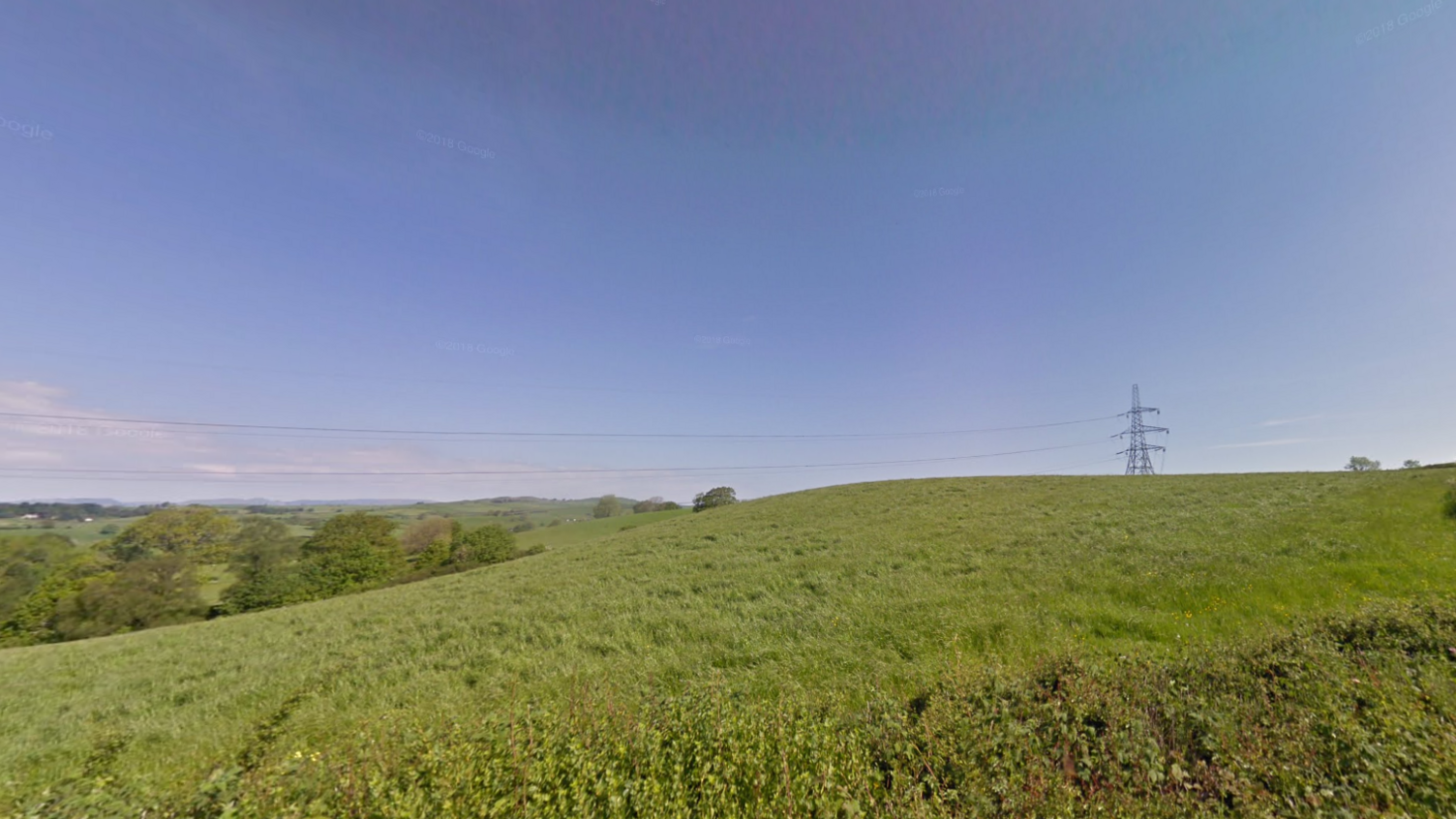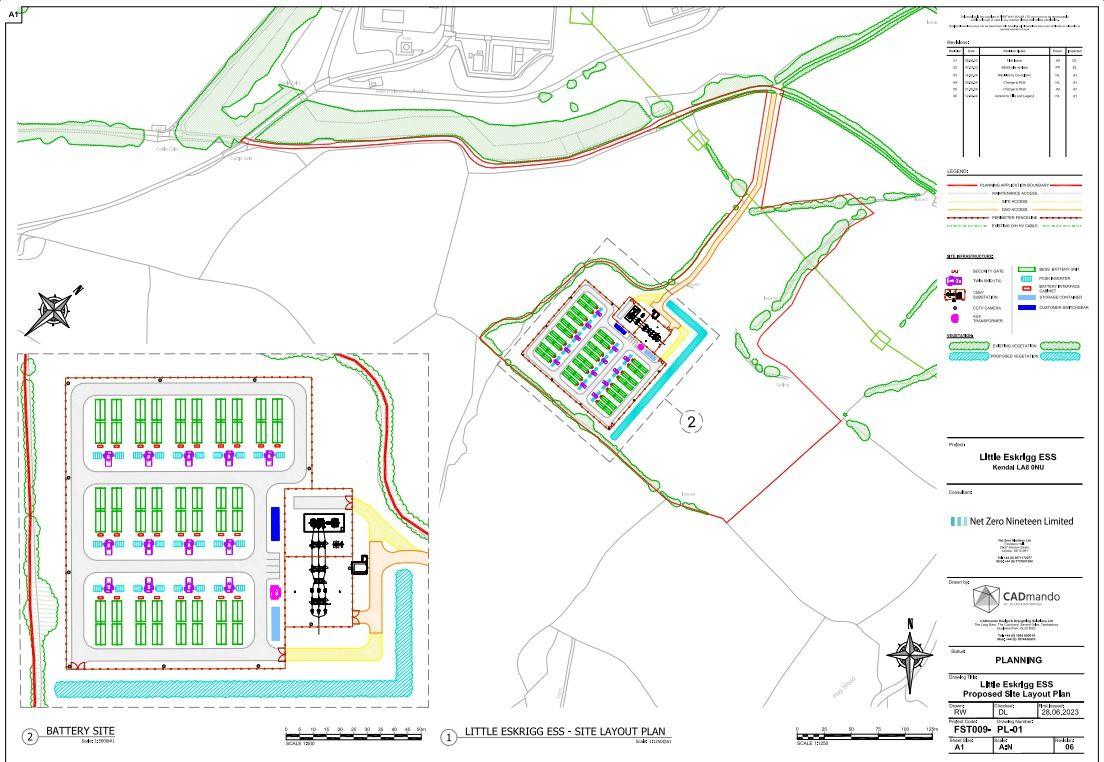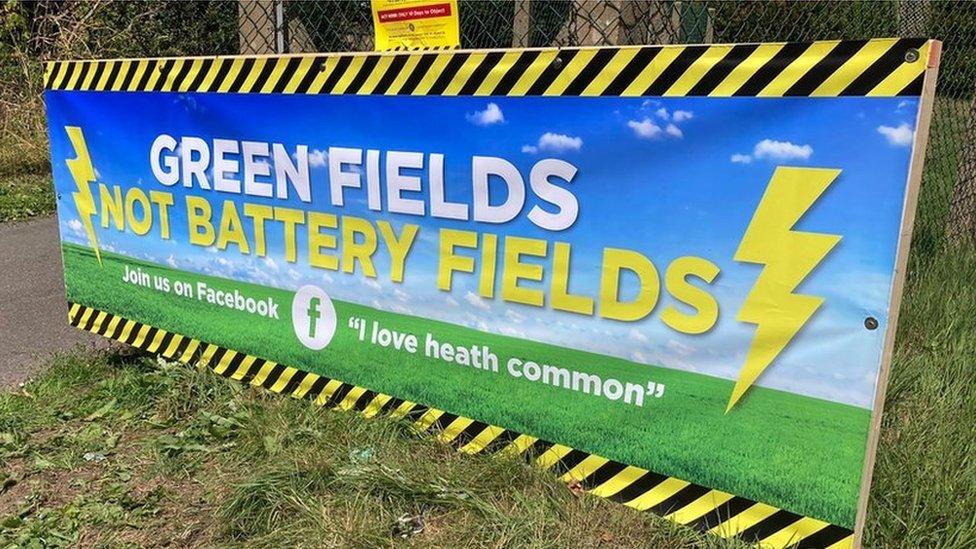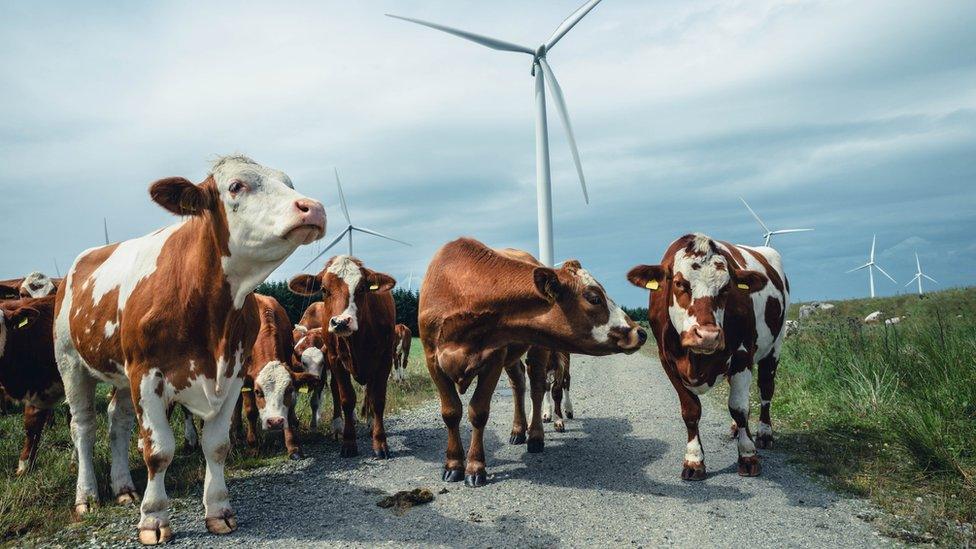Battery plant firm seeks environmental tests advice

Developers are looking to construct an energy storage system on land south of Eskrigg End Road, Kendal
- Published
Developers behind a battery storage plant have asked a council if environmental tests are needed.
Net Zero Nineteen would like to build a battery energy storage system (BESS) near Kendal, Cumbria, which it said would be capable of powering more than 300,000 homes for two hours.
The company requested a "screening opinion" from Westmorland and Furness Council to determine if the construction, on land to the south of Eskrigg End Road, required an Environmental Impact Assessment (EIA).
An EIA gives planners information about potential effects on the environment.
The proposed development sits on land currently used for pasture, located to the east of Middleshaw and to the north of Old Hutton.
The authority received the application on Wednesday.
Plans state the batteries would charge at off-peak times and then supply electricity to the local distribution network at times of peak demand, the Local Democracy Reporting Service said.

The proposed site consists of about 14 acres of agricultural land
"The site is not highly environmentally sensitive," planning documents went on to state.
"It would not involve complex or potentially hazardous environmental effects. The proposed development does not therefore, in our view, represent EIA development."
Building the proposed development is expected to last about 12 months, the application said.
A different BESS, proposed for the land north of Eskrigg Road, previously drew controversy over whether an EIA should be carried out, external.
Follow BBC Cumbria on X (formerly Twitter), external, Facebook, external and Instagram, external. Send your story ideas to northeastandcumbria@bbc.co.uk
- Published26 August 2023

